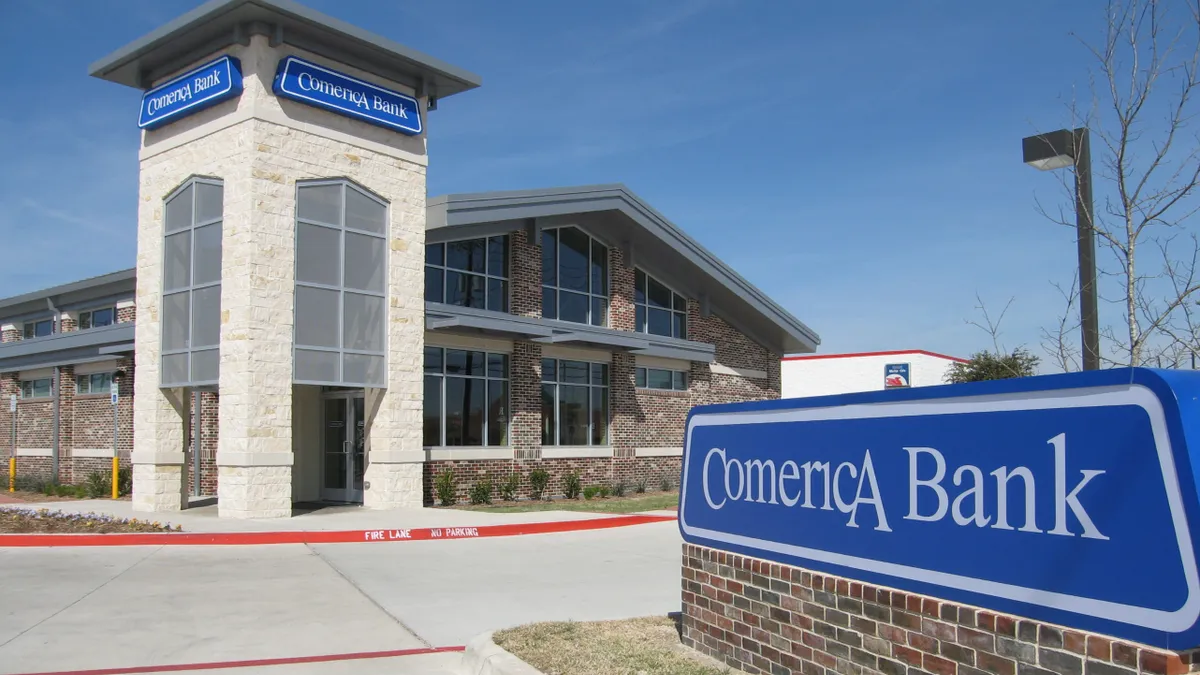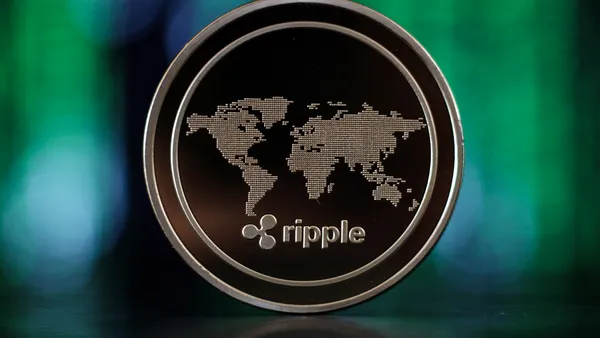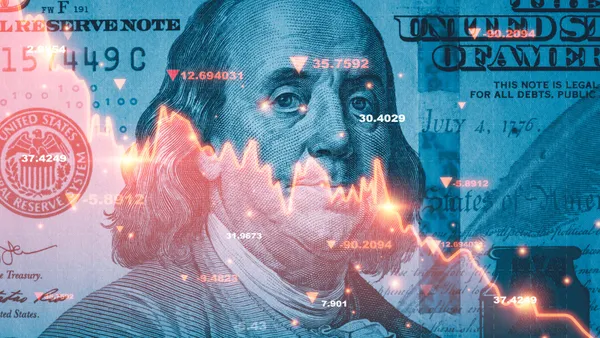Comerica Bank told investors Friday it has received preliminary notification from the Treasury Department that the agency will likely choose another banking partner for its Direct Express prepaid-card program that delivers government benefits to roughly 4.5 million unbanked Americans.
Comerica counted $3.3 billion in average deposit balances through the program in the second quarter, the bank said Friday. It would likely be next year before the bank feels the impact of the contract’s loss; the partnership is set to expire in early 2025.
“The process remains fluid as contract negotiations are not yet final,” Comerica’s CFO, Jim Herzog, told analysts Friday during the bank’s earnings call, according to American Banker. However, he added, "at this time we do not expect that Comerica Bank will retain the business long term.”
Treasury’s new partner, sources told American Banker, is BNY — though the bank declined to comment and the agency did not respond to a question on the matter.
Such a move would certainly raise BNY’s profile as a provider for the unbanked. The bank last year partnered with financial empowerment fintech MoCaFi to deliver disbursements from federal, state and local governments, and corporate clients — through the Vaia platform — to unbanked or underbanked individuals.
Comerica is taking the high road amid the potential loss.
“We see this as an opportunity to refocus and reprioritize resources towards targeted deposit strategies more aligned with our core relationship operating model,” Herzog told analysts Friday, according to American Banker.
It would be easy for Comerica to take the Direct Express partnership for granted. It’s held the Treasury contract since 2008 — and amid renewals in 2014 and 2020. And the money’s nice: $29 million in noninterest income from card fees in the second quarter, the bank said in its disclosure. Over all of 2023, that figure stood at $137 million.
But the bank faced a “serious contract violation” for allowing a third-party vendor to handle fraud disputes out of an office in Lahore, Pakistan, according to documents seen last year by American Banker.
The Treasury Department contract indicates that all services provided “shall be performed in the United States or its territories,” the publication noted.
And although Comerica’s vendor in the matter, i2c, is based in California, it has a presence in Lahore — and the personal data of veterans, Social Security holders and disability recipients were shared with it, a bank executive said, according to the publication.
Comerica, of course, would not be the first bank to be taken to task over its third-party partnerships. (Ask any of a number of banking-as-a-service providers the Federal Deposit Insurance Corp. and Federal Reserve have faulted this year.)
Additionally, Comerica shareholders last year sued Herzog and the bank’s CEO, Curtis Farmer, alleging the executives made materially false and misleading statements about the oversight of the Direct Express program. Comerica last month agreed to settle a class-action lawsuit alleging the bank denied refunds to Direct Express cardholders.
In its disclosure Friday, Comerica said it “intend[s] to continue to support our customers through the transition & prioritize efforts to drive deposits.”















